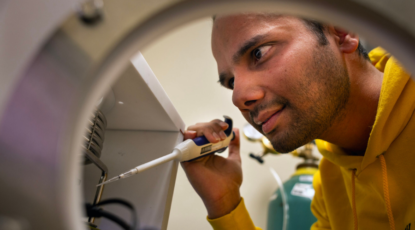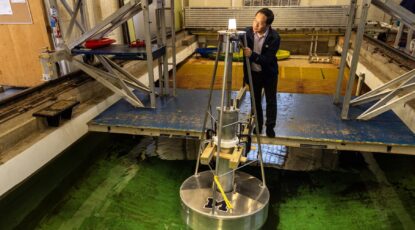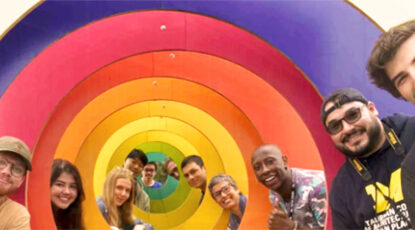Innovation
-
University to begin installing solar power sites on campus
New solar installations distributed across the Ann Arbor, Flint and Dearborn campuses will have a total capacity of 25 megawatts of renewable electricity after a three-year installation process is complete. The electricity generated — enough to power about 3,000 homes — will feed directly into U-M buildings rather than going back into the regional power grid.
-
U-M, Los Alamos National Laboratory to jointly develop Michigan-based AI research center
The effort builds on a recently established research collaboration between the two institutions. A facility in Washtenaw County will house one computing center to support Los Alamos scientists and engineers focused on national security AI challenges. An adjacent academic computing center will align U-M faculty and students with Los Alamos researchers.
-
In 10 seconds, AI model detects cancerous brain tumor often missed during surgery
The technology works faster and more accurately than current standard of care methods for tumor detection and could be generalized to other pediatric and adult brain tumor diagnoses. U-M neurosurgeons believe it could serve as a foundational model for guiding brain tumor surgery going forward.
-
U-M tops $2B milestone in annual research volume
The University reported a record $2.04 billion in research volume during fiscal year 2024, marking the first time its annual research expenditures have exceeded the $2 billion mark.
-
Space Force establishes $35M institute for versatile propulsion and power at U-M
The Space Power and Propulsion for Agility, Responsiveness, and Resilience Institute involves eight universities and 14 industry partners and advisers in one of the nation’s largest efforts to advance space power and propulsion. The institute will be the first to bring fast chemical rockets together with efficient electric propulsion powered by a nuclear microreactor.
-
Free, open course in equitable stage makeup and hair
Too often, performers are working with makeup artists and crew who are not trained on their skin tone and hair texture. So, when they should be fully embodying a character, they are instead confronted with limitations that can feel frustrating and demoralizing. Now, a professor from the School of Music, Theatre & Dance has teamed with a performer from RuPaul’s ‘Drag Race’ to change all that.
-
First data from XRISM space mission provides new perspective on supermassive black holes
Some of the first data from an international space mission is confirming decades worth of speculation about the galactic neighborhoods of supermassive black holes. More exciting than the data, though, is the fact that the long-awaited satellite behind it—the X-Ray Imaging and Spectroscopy Mission or XRISM—is just getting started providing such unparalleled insights.
-
Unlocking ocean power: $3.6M for community-centric wave energy converters
Coastal communities are partnering with a multidisciplinary research team to determine the best way to harvest wave energy at Beaver Island, Michigan, and Nags Head, North Carolina. Wave energy could power millions of homes, but to make a splash in the industry, the tech must balance engineering, socio-economic and environmental trade-offs, researchers say.
-
Taking it to the streets: How the humanities can reframe urban renewal
Research-driven collaboration with community leaders is nothing new, but the Michigan-Mellon Project on the Egalitarian Metropolis tweaked the model in a subtle but profound way. Faculty leaders prioritized history, literature, and the visual arts on the mission toward Detroit’s inclusive recovery. With a decade’s worth of results on the books, they’ve built a convincing case for the humanities.










